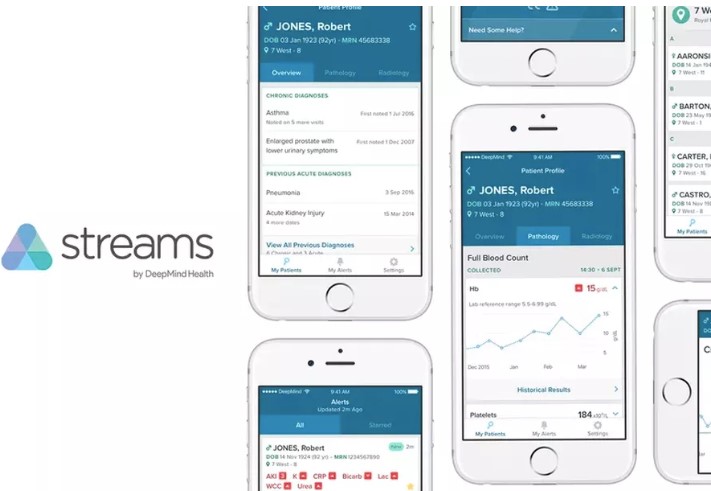
As part of an ongoing reorganization of its health care efforts, Google has announced that it’s absorbing DeepMind Health, a part of its London-based AI lab DeepMind.
In a blog post, DeepMind’s founders said it was a “major milestone” for the company that would help turn its Streams app — which it developed to help the UK’s National Health Service (NHS)— into “an AI-powered assistant for nurses and doctors” that combines “the best algorithms with intuitive design.” Currently, the Streams app is being piloted in the UK as a way to help health care practitioners manage patients.
DeepMind says its Streams team will remain in London and that it’s committed to carrying out ongoing work with the NHS. These include a number of ambitious research projects, such as using AI to spot eye disease in routine scans.
The news is potentially controversial given the upset in the UK caused by one of DeepMind’s early deals with the NHS. The country’s data watchdogs ruled in 2017 that a partnership DeepMind struck with the NHS was illegal, as individuals hadn’t been properly informed about how their medical data would be used.
Another consistent worry for privacy advocates in the UK has been the prospect of Google getting its hands on this sort of information. It’s not clear what the absorption of the Streams team into Google means in that context, but we’ve reached out to DeepMind for clarification. According to a report from CNBC, the independent review board DeepMind set up to oversee its health work will likely be shut down as a result of the move.
More broadly speaking, the news clearly signals Google’s ambitions in health care and its desire to get the most of its acquisition of the London AI lab. There have reportedly been long-standing tensions between DeepMind and Google, with the latter wanting to commercialize the former’s work. Compared to Google, DeepMind has positioned itself as a cerebral home for long-sighted research, attracting some of the world’s best AI talent in the process.
DeepMind Health has produced work with more immediate and practical applications than other parts of the company, which likely made it a tempting target for the new CEO of Google Health, David Feinberg, who was appointed last week. Feinberg’s new mandate is to restructure all of Google’s disparate bets in health, from hardware to algorithms. Apparently, that also includes absorbing other parts of Alphabet if necessary.